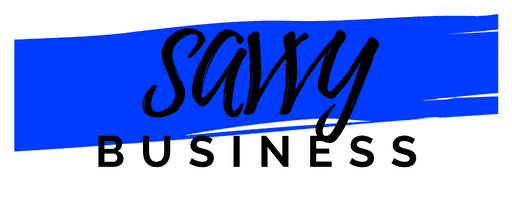The Benefits of a Net 30 Vendor Account for Small Businesses
Introduction
As a small business owner, finding ways to enhance cash flow and streamline operations is always a top priority. One option that can significantly contribute to achieving these goals is the utilization of a Net30 vendor account. In this comprehensive guide, we will delve into the advantages of having a Net30 vendor account and how it can substantially benefit your small business. If you’re eager to leverage these benefits, you can now apply for a Net30 vendor account with Savvy Business which offers Net30 terms ranging from $100 to $50,000 for resellers. It’s important to note that Savvy Business reports Net30 account activity to the Experian Business Credit Agency.
Understanding a Net30 Vendor Account
A Net30 vendor account is essentially a credit account that affords you the opportunity to procure goods or services from a supplier on credit and settle the invoice within a 30-day period. This type of trade credit is commonly employed in business-to-business transactions and is typically provided by vendors who regularly supply goods or services, such as wholesalers, manufacturers, or distributors.
To initiate a Net30 vendor account, you’ll need to complete a credit application. This application will collect essential information about your business, including your business name, address, and tax ID number. Additionally, it will request financial details such as your annual revenue and credit score. The vendor will scrutinize this information to assess your creditworthiness and decide whether to approve your application.
Upon approval, you will be assigned a credit limit, indicating the maximum amount you can purchase on credit at any given time. You’ll also receive payment terms, which stipulate when payments are due and any applicable discounts or penalties for early or late payments.
Advantages of a Net30 Vendor Account
Now, let’s explore the myriad advantages a Net30 vendor account can offer your small business.
1. Enhanced Cash Flow
One of the most significant benefits of a Net30 vendor account is the potential for improved cash flow. By acquiring goods or services on credit and settling the invoice within 30 days, you can effectively manage your cash flow without the immediate need for payment. This can be especially advantageous for businesses that experience seasonal fluctuations in revenue or periodic financial challenges.
With a Net30 account, you have the flexibility to procure necessary supplies or inventory while deferring payment, granting you additional time to generate revenue and bolster your cash flow before the payment deadline.
2. Building Credit
Another compelling advantage of a Net30 vendor account is its role in helping you establish and build credit. Consistently adhering to payment schedules with your Net30 account allows you to build a credit history with the vendor. This, in turn, can facilitate access to larger credit lines or loans in the future.
Building credit with a vendor closely resembles building credit with a traditional financial institution. Demonstrating reliability in paying bills on time and cultivating a positive payment history conveys your trustworthiness as a customer. Over time, this can lead to expanded credit limits, more favorable payment terms, and competitive pricing.
3. Strengthened Supplier Relationships
A Net30 vendor account can also contribute to fostering stronger relationships with your suppliers. Opening a Net30 account signifies entering into a partnership with your supplier, where they provide essential goods or services for your business, and you commit to timely payments.
By consistently meeting your payment obligations, you demonstrate your reliability and trustworthiness as a customer. This can pave the way for improved relationships and more favorable terms and conditions. For instance, suppliers may be inclined to offer you discounts or special pricing, knowing that you consistently fulfill your financial commitments.
4. Increased Purchasing Power
With a Net30 account, you can elevate your purchasing power significantly. The ability to purchase goods or services on credit allows you to preserve cash flow while capitalizing on discounts for bulk acquisitions. This strategic advantage enables you to procure larger quantities of inventory or supplies, ultimately reducing costs and enhancing profit margins.
Conclusion
In summary, a Net30 vendor account presents several compelling advantages for small businesses, including the enhancement of cash flow, the opportunity to build credit, the strengthening of supplier relationships, increased purchasing power, and simplified accounting. By establishing a Net30 account, you gain the flexibility to procure essential supplies or inventory without immediate payment obligations. Moreover, consistent adherence to payment schedules aids in building trust and creditworthiness with your vendor, potentially leading to more favorable terms in the future. To embark on this journey of financial improvement and stronger supplier relationships, take the first step by applying for a Net30 vendor account with Savvy Business today.
Apply for a Net30 Vendor Account with Savvy Business to unlock these benefits for your small business.
It is crucial, however, to effectively manage your cash flow and ensure prompt payments to avoid late fees and potential damage to your credit. Overall, a Net30 vendor account stands as a valuable tool for small businesses striving to enhance their financial management and cultivate enduring supplier partnerships.
